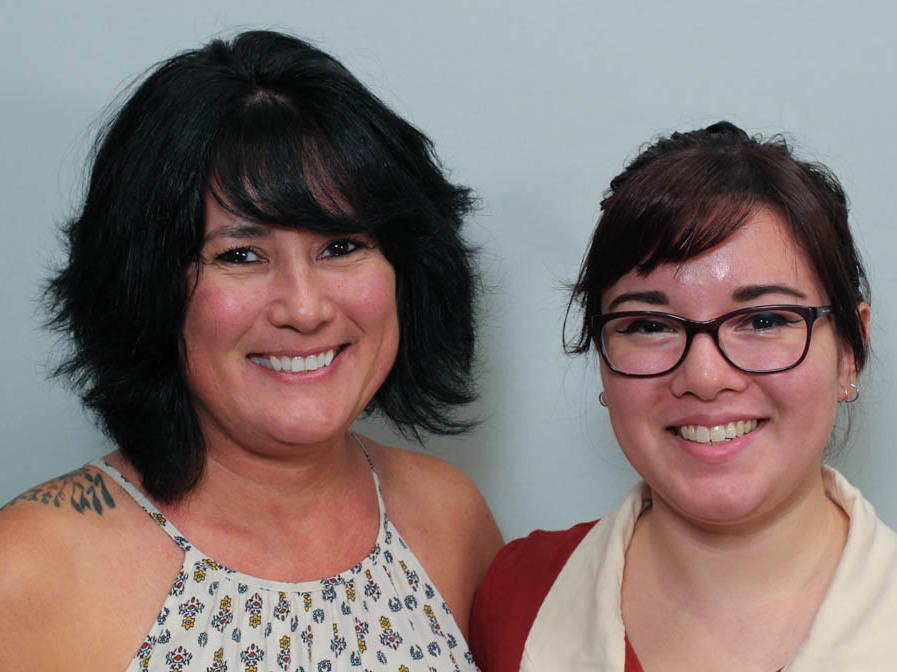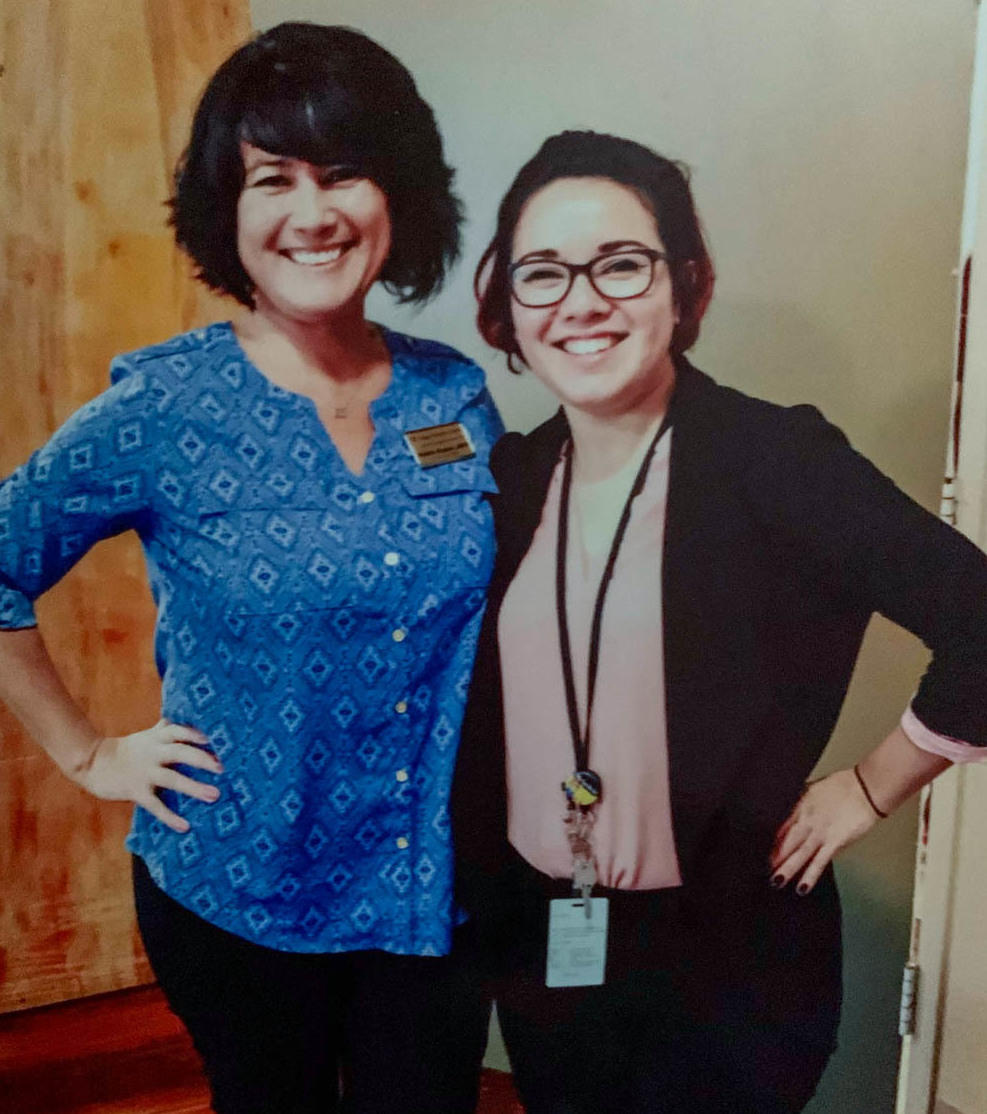Section Branding
Header Content
Together, Mother And Daughter Social Workers Face New Challenges In A Pandemic
Primary Content
Lauren Magaña followed in her mother's footsteps when she became a social worker. It's been a most challenging year for both of them. They work mostly with elderly patients — those particularly vulnerable during the coronavirus pandemic. But Magaña and her mom, Michelle Huston, have been able to lean on one another.
Huston, now 50, and Magaña, 26, first recorded a StoryCorps interview in 2018 — long before the pandemic had figured into their work — to talk about why they chose to enter a career in social work.
At the time, Magaña was finishing her master's degree in the field while living with her mother in Atlanta. Huston said she'd been inspired to pursue the work after being with her grandmother in her final moments of life.
"My grandmother was dying and I went to see her, and she was barely speaking but said to me, 'Be happy.' "
Those simple words were what pushed Huston to change her life "180 degrees," at the age of 38.
"I went back home, told your dad that I needed a divorce," she told her daughter. Huston, who had dropped out of high school at 17, then went to college and studied social work.
Seeing her mother go after her goal inspired Magaña to get into social work, too.
"I always tell people when they ask me, 'Why did you become a social worker?' I tell them, 'Well, my mom was kicking butt all the way through school,' " she said. "You humanized people and you taught me how not to be afraid of people, because people have value."
"It is a privilege to be a part of — even a small part of their life, and then a privilege to help them move on to wherever is beyond death."
Earlier this week, Magaña and Huston caught up with StoryCorps for a remote follow-up interview, to reflect on their work today. Magaña is currently a social worker at an elder care law firm in Atlanta, where she mediates with families as they manage their loved one's care. Huston is a hospice social worker at a hospice care center in Athens, Ga.
During the pandemic, Huston has been unable to visit many of her patients in person. Some patients who'd been in her care for years have died during the pandemic — and she couldn't to say goodbye.
"It has been tragic in ways that, unless you are in this business, would be hard to understand," Huston said. "You develop a relationship with these people and you kind of know how their families are feeling."
Now that Magaña can relate to her mother's work, she's all the more grateful to have Huston as a support system.
"I called you the other day, crying, because you're one of the few people that I know that truly understand, like, how hard our job is," she said.
Magaña's recent work has been more on the administrative side. But on the rare occasions she interacts with her clients and their family members in person, it's been from a distance, behind personal protective equipment.
She described a recent, emotional day, spent with a man in his 90s who was hard of hearing.
"He shakily stands up and he grabs me and hugs me and says into my ear, 'I can't hug my granddaughter, so I'm gonna hug you,' she recalled. "And I started to lose it. And we weren't supposed to touch."
Still, they embraced one another.
"It was so worth it," said Magaña.
"This has definitely been a challenging few months," Huston told her daughter. "But I just want you to know that I am extremely proud of you. And it is such a privilege to be in this work with you."
Magaña feels the same.
"I think that I am really, really blessed to be able to know what I want to do and do it and love it and do it with my mom," she said.
Audio produced for Morning Edition by Janmaris Perez. NPR's Emma Bowman adapted this interview for the Web.
StoryCorps is a national nonprofit that gives people the chance to interview friends and loved ones about their lives. These conversations are archived at the American Folklife Center at the Library of Congress, allowing participants to leave a legacy for future generations. Learn more, including how to interview someone in your life, at StoryCorps.org.
Copyright 2020 NPR. To see more, visit https://www.npr.org.


